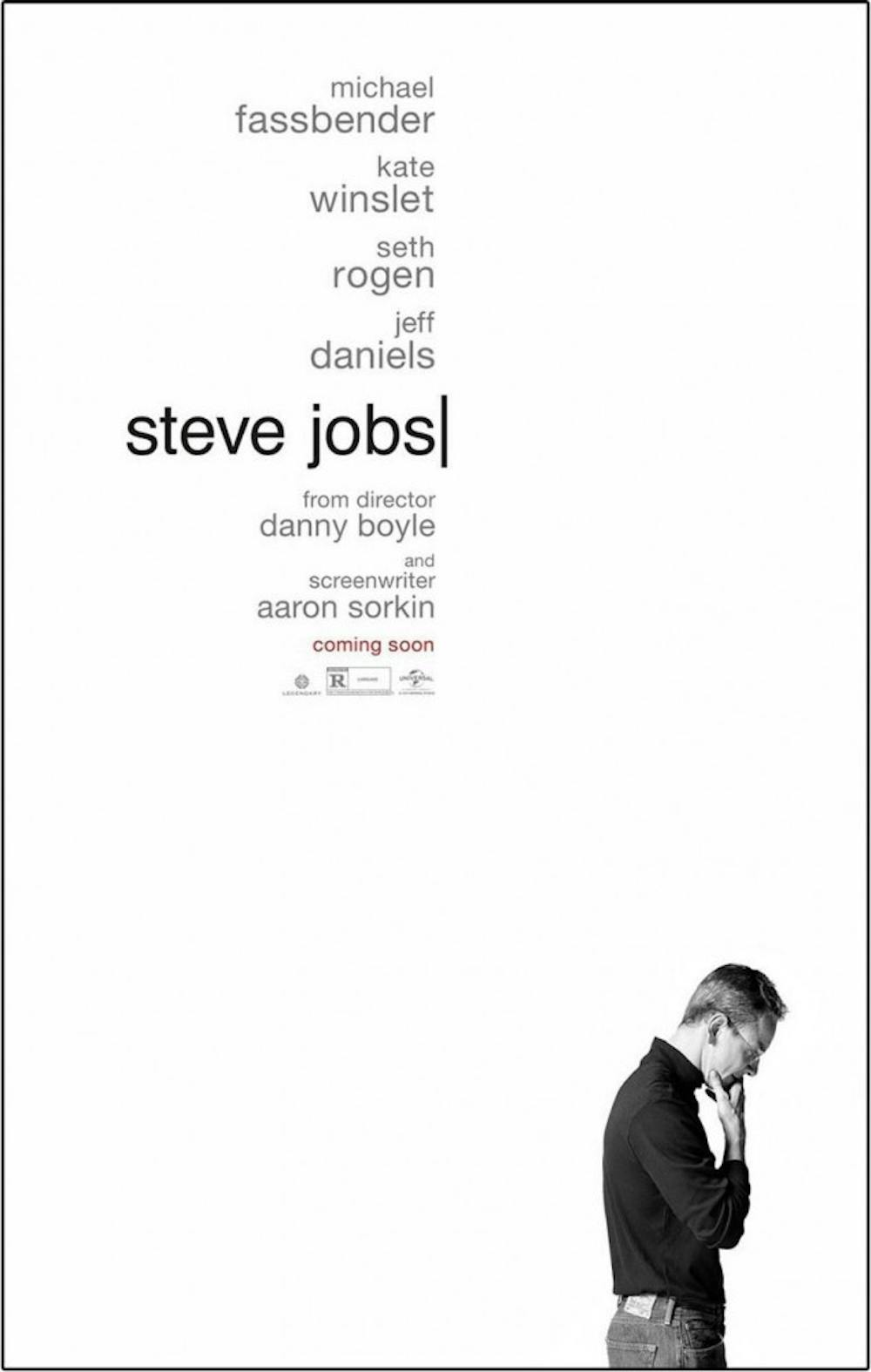It feels like the previous Steve Jobs drama, “Jobs,” came out just yesterday. However, the new adaptation of Walter Isaacson’s biography of the former Apple leader from director Danny Boyle and screenwriter Aaron Sorkin is the real deal and demands to be seen. The exact factual accuracy may deserve scrutiny, but the story presented in “Steve Jobs” is great enough that any minor inaccuracies do not matter too much.
The movie tells the story of the lionized pioneer, warts and all, in three scenes set before the reveal of the original Macintosh, the NeXT Black Cube, and the iMac. “Steve Jobs” does not waste any time diving into the action, dropping the viewer into the middle of a high-strung argument in 1984, minutes before the Macintosh reveal. Jobs demands that Mac team member Andy Hertzfeld make the Mac demo say “hello” and that all exit signs be blacked out against fire code. The fight falls in and out of primary focus as other members of Jobs’ professional and personal orbit clash with him; colliding stories intersect, clash and produce even more conflict. Stories and subplots come in and out of single scenes and across the film.
The massive gravitational force at the center of these conflicts is Michael Fassbender’s Jobs, and his performance is nothing short of magnificent. He plays the icon as an indisputable visionary who “play[s] the orchestra,” yet is incapable of acknowledging others. Fassbender is impossible to look away from, as he captures this high wire act, depicting all these elements while remaining sympathetic. While Jobs is clearly difficult to work with in the film, it is impossible to not be drawn to him. The subplot involving his daughter provides the main emotional hook, and it works excellently as an emotionally-grounding arc, providing great thematic symmetry with Jobs’ feelings of rejection stemming from being adopted. A lack of Oscar attention for Fassbender would be borderline criminal.
The ensemble members all deliver strong work, and they all play off of Fassbender excellently. Kate Winslett’s Joanna Hoffman is a strong presence as Jobs’ confidant and voice of reason. Seth Rogen delivers a great dramatic turn as Steve Wozniak, Jobs’ exasperated former partner who can’t understand why Jobs gets the glory and attention while his own products keep the lights on at Apple. Jeff Daniels' John Scully provides some highlight moments exploring Jobs' adoption. A high-strung conversation about Jobs' ouster from Apple interspersed with flashbacks is one of the film’s highlights.
Sorkin's screenplay brings in verbal fireworks with dialogue sharp as a razor, and Danny Boyle gives everything a fast pace; the film rarely slows. The framing device creates great symmetry that contributes to this fast pacing while also emphasizing Jobs’ change as he ages. The fact that two of the reveal launches depicted were for products that failed goes to magnify Jobs' arrogance, persistence, and uncompromising vision that paid off. It took him two strikes before he achieved his string of home-runs.





